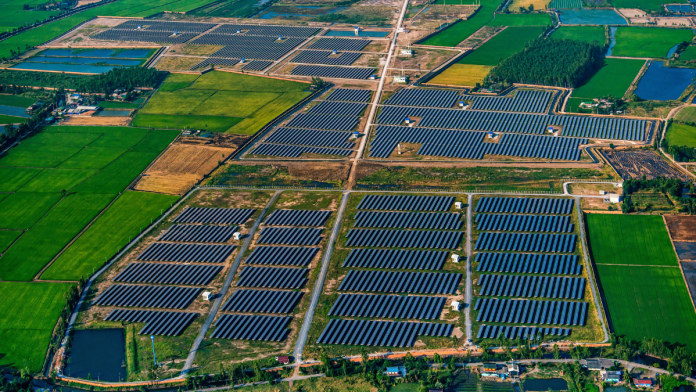Nigeria’s energy transition strategy is projected to attract more than $410 billion in investments by 2060, as the nation moves to establish itself as Africa’s renewable energy powerhouse, Vice President Kashim Shettima announced on Monday.
Speaking at the opening of the Nigerian Renewable Energy Innovation Forum (NREIF) 2025 in Abuja, Shettima reaffirmed the Tinubu administration’s resolve to harness Nigeria’s vast clean energy potential to drive industrialization, social inclusion, and sustainable growth.
“President Tinubu’s administration is pursuing a long-term vision to build a 277-gigawatt power system by 2060 one anchored on innovation, local manufacturing, and private investment,” the Vice President said.
He added that roughly $23 billion will be needed in the short term to expand electricity access and lift millions of Nigerians out of energy poverty.
Government Strengthens Incentives for Clean Energy
Shettima explained that the Federal Government is working to enhance incentives for domestic production, streamline regulatory frameworks, and strengthen collaboration with state governments and international investors to accelerate the transition to renewable energy.
“These reforms are structured to reduce investment risks and build a self-sustaining renewable energy market capable of generating jobs and diversifying the national economy,” he said.
$400 Million Already Mobilized for Renewable Manufacturing
The Vice President disclosed that engagements through the NREIF have already secured over $400 million in new investments within Nigeria’s renewable energy manufacturing ecosystem spanning solar panel production, smart meter assembly, battery storage systems, and recycling facilities.
According to Shettima, these early-stage projects are expected to create more than 1,500 direct jobs across several states, underscoring the administration’s progress in establishing a competitive clean energy market.
Stakeholders Applaud Milestone Achievements
The forum convened major stakeholders, including Minister of Power Adebayo Adelabu and Rural Electrification Agency (REA) Managing Director Abba Aliyu, who both described the gathering as a watershed moment for Nigeria’s renewable energy sector.
During the event, several multi-million-dollar Memoranda of Understanding (MoUs) were signed between Nigerian states, the REA, and international partners such as the Dutch government, signaling renewed global confidence in Nigeria’s green energy landscape.
“This marks a new chapter in our collective journey toward a secure, inclusive, and sustainable energy future,” Shettima remarked.
REA Expands Focus Beyond Solar
Earlier in August, REA boss Abba Aliyu identified solar power as the most cost-effective pathway for electrifying Nigeria’s urban and rural communities.
Aliyu revealed that the agency is also exploring wind, biomass, and other renewable sources, following a recent MoU with the Nigerian Wind Energy Council to develop small-scale wind infrastructure.
“We are already in discussions on economically viable wind power models within acceptable environmental limits,” Aliyu said.
Outlook
With billions of dollars in potential investments and a clear policy framework, Nigeria’s energy transition agenda is positioning the country to become a regional leader in renewable innovation, manufacturing, and sustainable growth by 2060.




